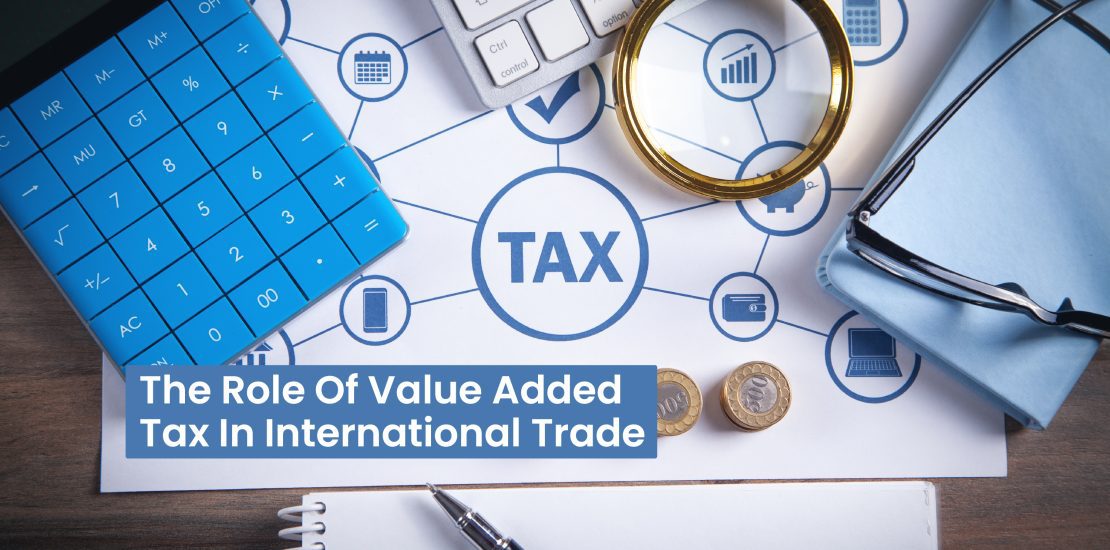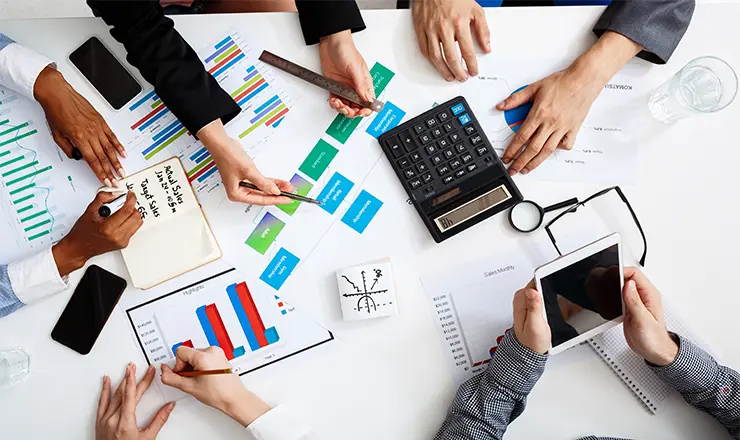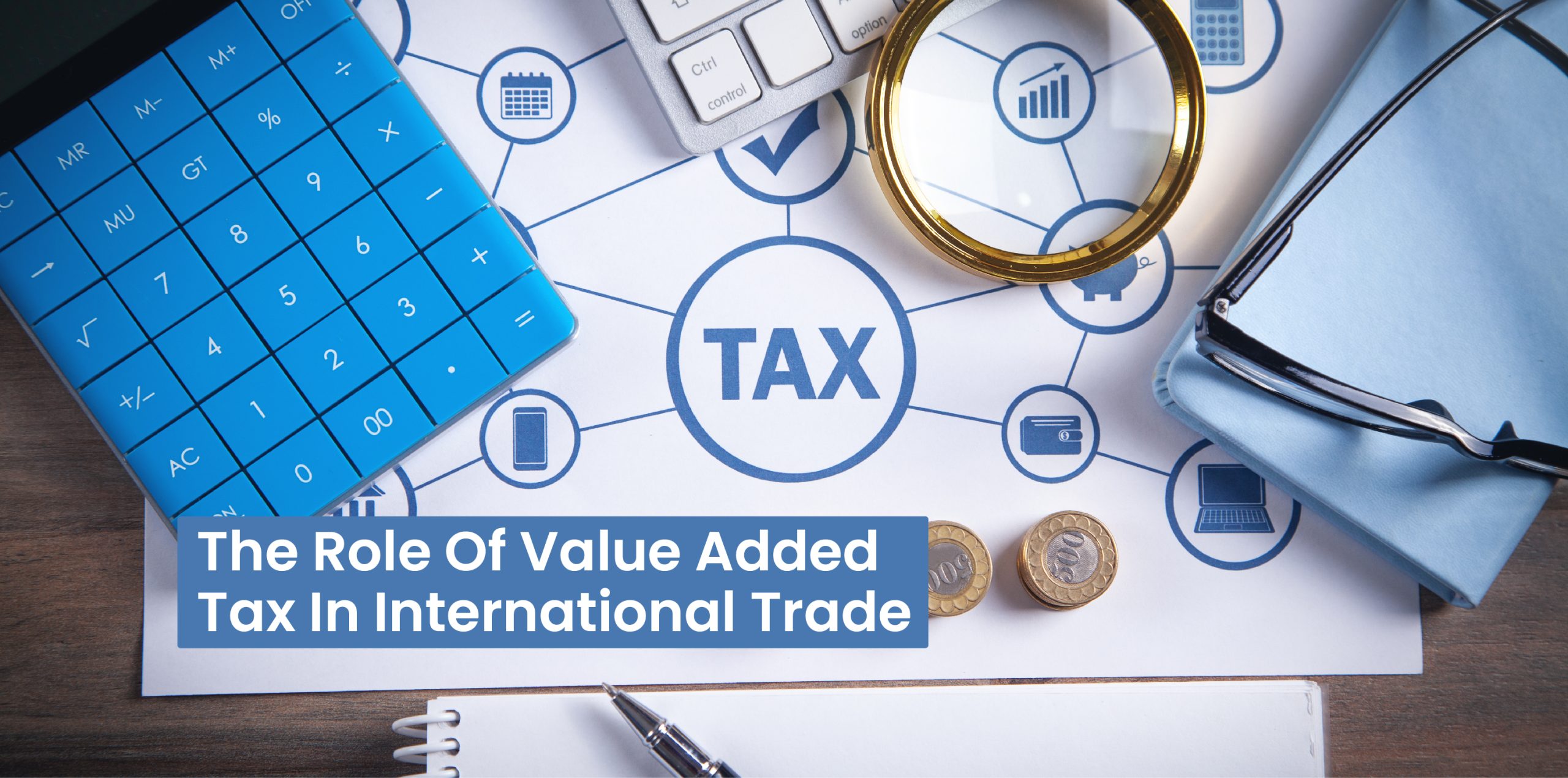The Role of Value Added Tax in International Trade
- October 4, 2023
- Posted by: admin
- Category: Value Added Tax

The UAE plays a vital role in global trade, where countries work together to boost their economies. Value-added Tax (VAT) are essential in this international trade. VAT is a common tax worldwide and has a big impact on how trade happens. It affects how much things are traded, how competitive countries are, and their overall economic success. In this guide, you’ll understand VAT implementation in the UAE, how it affects international trade, and what it means for countries worldwide.
VAT Implementation in UAE
The UAE introduced VAT on January 1, 2018, with a standard rate of 5%. This marked a significant shift in the country’s tax landscape and required businesses to adapt to the new taxation system.
Role of VAT on International Trade
VAT boosts global trade transparency, supports input tax recovery, and aligns with international tax standards, enhancing its appeal for cross-border transactions. Let’s see how
Revenue Generation
VAT serves as a vital source of revenue for the UAE government. It allows the government to diversify its income sources, reducing its reliance on oil revenues and promoting fiscal sustainability. This revenue can be used to fund various public services and infrastructure development.
Competitiveness
The implementation of VAT in the UAE has brought it in line with international tax practices. This has improved the country’s competitiveness as a global trading hub. Many countries around the world have VAT or similar consumption taxes, and the UAE’s adoption of VAT facilitates smoother international trade transactions.
Documentation and Compliance
VAT requires businesses engaged in international trade to maintain proper documentation of their transactions. This includes invoices, receipts, and records of VAT payments and refunds. This documentation ensures transparency and compliance with tax regulations, which is vital for cross-border trade.
Input Tax Recovery
One of the key features of VAT is the ability for businesses to recover the VAT they pay on their inputs and expenses. This includes VAT paid on imports of goods and services. The ability to recover input tax reduces the overall cost of production and enhances the competitiveness of UAE businesses in the global market.
Reverse Charge Mechanism
In international trade, the reverse charge mechanism is often applied. Under this mechanism, the responsibility for paying VAT shifts from the supplier to the recipient of goods or services. This ensures that VAT is accounted for even when dealing with foreign suppliers, making international transactions more seamless.
Customs and Imports
VAT is applicable to the import of goods into the UAE. It is typically paid at the time of import clearance. This means that foreign businesses exporting goods to the UAE need to understand UAE VAT rules and comply with them to ensure the smooth flow of goods across borders.
Export of Goods and Services
Generally, exports of goods and certain services are zero-rated for VAT purposes in the UAE. This means that businesses exporting these items do not charge VAT on them. This makes UAE exports more attractive to international buyers.
Compliance and Penalties
The UAE places a strong emphasis on VAT compliance, both for domestic and international transactions. Non-compliance can lead to penalties and fines, making it essential for businesses involved in international trade to fully understand and adhere to VAT regulations.
Effects of VAT on International Trade
When considering its impact on international trade in the UAE, the following effects should be taken into account:
Impact on Exporters
Businesses in the UAE that export goods and services to other countries are typically not subject to VAT on their exports. This makes UAE exports more attractive to foreign buyers, as they do not have to pay VAT on these products. This can boost UAE’s export competitiveness.
Competitive Disadvantage for Local Producers
Due to the VAT, locally produced goods and services may be more competitively priced compared to imports, as they do not incur the same VAT costs. This can give local industries an advantage in the domestic market.
Complex Compliance and Documentation
VAT systems often come with complex compliance requirements and documentation, especially for businesses engaged in international trade. Companies engaged in cross-border transactions need to ensure they correctly calculate and report VAT on their imports and exports.
Bilateral Trade Agreements
The UAE may negotiate bilateral trade agreements with other countries to mitigate the impact of VAT on international trade. These agreements could include provisions for reduced or exempt VAT rates on specific goods and services to encourage trade between nations.
Tax Efficiency
VAT can promote tax efficiency by encouraging businesses to keep proper records and engage in transparent financial transactions, which can have a positive impact on the overall business environment and economic stability.
Make the Right Choice: Choose BRISK VAT Services
Choosing BRISK VAT Services in UAE means choosing a partner dedicated to your success in international trade within the UAE. Our commitment to excellence, expertise in VAT regulations, and personalized approach make us the preferred choice for businesses seeking seamless VAT solutions.
In a landscape where VAT compliance can significantly impact your bottom line, make the right choice – choose BRISK VAT Services and embark on a journey of success in international trade in the UAE.
Conclusion
Value Added Tax plays an essential role in international trade within the UAE. It influences import and export activities, promotes transparency, and contributes to the nation’s economic development. Businesses involved in international trade must navigate VAT regulations effectively to reap its benefits.



